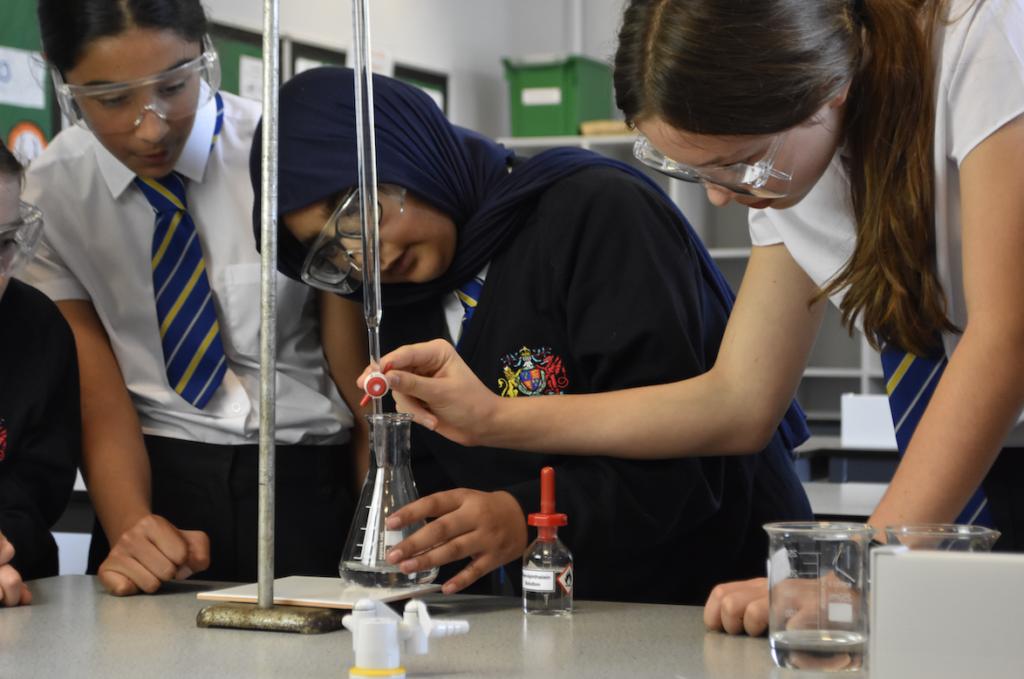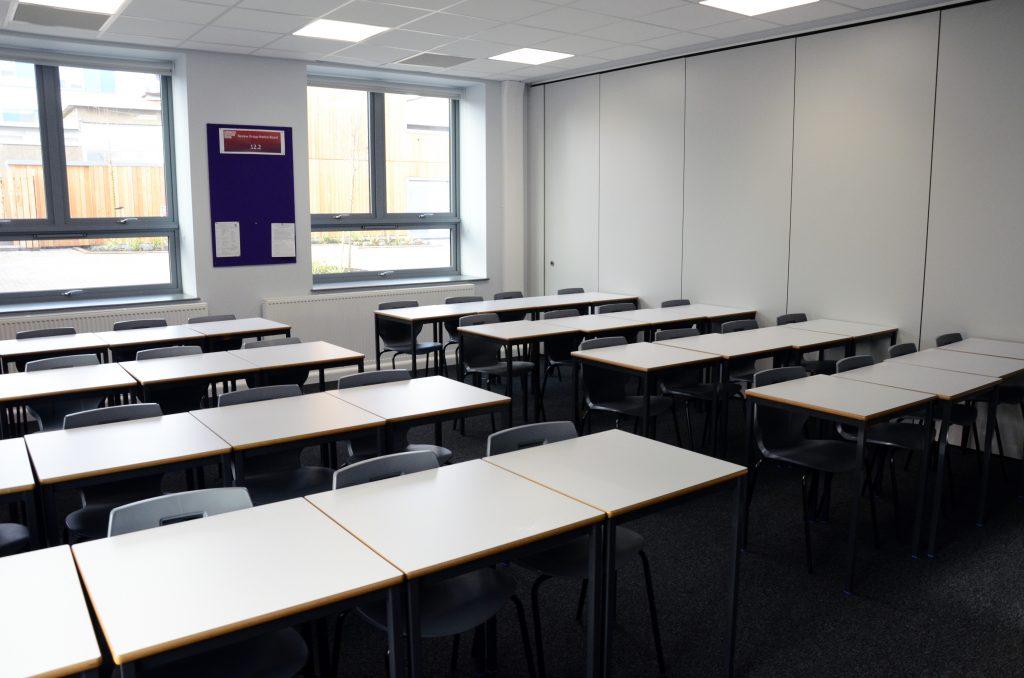In history we investigate:
– Declining power of the monarchy, rising power of parliament and to what extent power has transferred to the people
– How people began to group themselves beyond their villages (economic, religious, social/political status) and once grouped, how people challenged their positions
– How Germany developed into a democracy and then a dictatorship between 1890 and 1945. We study the political, economic and social and cultural aspects of these two developments.
In history we use enquiry questions (the topics below) to investigate different periods of history (the details are in the summer below)
Year 7
Autumn Term
1:How was the monarchy established in England
What is chronology?
How do historians use primary sources to find out about the Anglo-Saxons?
How did historians interpret Alfred the ‘Great’?
Who were the claimants to the throne in 1066?
How did the Vikings lose the Battle of Stamford Bridge?
Why did William Duke of Normandy win the Battle of Hastings?
Students need to know when the Romans left England that the Anglo-Saxons and the Vikings fought over territory until Alfred the ‘Great’ and his son Athelstan established Anglo-Saxon rule. This was thrown up in the air again when Edward the Confessor died leaving no heir creating the conditions for the Battle of Stamford bridge and Hastings. Therefore, students will gain an understanding of the significance of heirs to a monarchy.
2: How did royal authority change in Medieval England?
What was the Feudal System?
What does the Domesday Book tell us about the Middle Ages?
How important was religion and the Church in the Middle Ages?
How significant was the Magna Carta signed by King John in 1215?
How accurate are interpretations of King John?
Students need to know that William Duke of Normandy used the Feudal System in England to establish his authority. He modernised the monarchy by introducing the Domesday book which enabled him to collect taxes more efficiently. Students need to know that the Church had a central role in people’s lives but also in politics and this created an ongoing power-struggle between the Pope and the King of England. Students need to know that the Magna Carta puts restraints on the authority of the king
Spring Term
1:How was the Church and the Feudal System challenged?
How did the Crusades change England?
What were the consequences of the Black Death in 1347?
What was the Peasants’ Revolt in 1381 and how significant was it?
What is the difference between vague and specific contextual knowledge?
Students need to know how England changed during the Middle Ages (socially and politically). For example, Europeans learned about medicine, food and education from the Muslims in the Middle East. The Black Death killed half the population in England which made peasants more in demand and valuable, which led to an increase in their wages. Although the Peasants’ Revolt failed the King never passed a law like the Statute of Labourers again.
2: How did Henry VIII change England forever?
How are biassed primary sources useful to a historian?
Who was Henry VII?
What was the European Reformation?
Why did Henry VIII ‘Break with Rome’ in 1534?
Why did Henry VIII have 6 wives?
How have Edward VI and ‘Bloody’ Mary been remembered?
Students need to know that sources are often biased but that historians use the bias of sources to investigate the past further. They need to know that Henry VII was the first Tudor monarch who had many successes. They need to know how the European Reformation began in Germany by a priest called Martin Luther and that people who followed him were called Protestants or Lutherans. They need to know key differences between the beliefs of Catholics and Protestants. They need to know the main reasons why Henry VIII decided to break with Rome in 1534 and how that explains why he had 6 wives. They need to know that Edward was a strict protestant and that Mary changed England back to a Catholic religion.
Summer Term
1: How did the Church and Monarchy evolve in Elizabethan England?
What problems did Elizabeth face from 1558?
What was the religious settlement?
How did society develop during Elizabethan Times?
What is the significance of privateers in Elizabethan times?
Why did the invasion of the Spanish Armada fail?
How did Elizabeth use propaganda?
Students need to know how Elizabeth reached a religious compromise that was largely successful. They need to know that Elizabeth did not marry, nor provide the Tudors with an heir. They need to know that England was not at all a ‘world power’ in this period but that Spain dominated and therefore understand the significance of England defeating the Spanish Armada. They need to know what propaganda is and how Elizabeth used it.
2: How did the Church and Monarchy evolve in Stuart England?
How did Charles I annoy his subjects?
What were the causes of the English Civil War in 1642?
Why did Birmingham support the Roundheads?
How is Oliver Cromwell viewed?
How significant is the Glorious Revolution in 1688?
Students need to know why Charles I and parliament went to war with each other in 1642. They need to know how the two sides fought each other by using the Battle of Birmingham as a case study. They need to know that there are different interpretations of Oliver Cromwell. They need to know that the Glorious Revolution is significant because of the Bill of Rights and the rise of parliament and the official constraints put on the monarchy from this point onwards.
Year 8
Autumn Term
1: What impact did the industrial revolution have on
British life?
Why did so many ancient civilisations emerge in Eurasia?
What problems did people experience working in factories?
What problems did people experience living in industrial cities?
What were the causes and consequences of immigration during the Industrial Revolution?
What were the causes and consequences of political change during the Industrial Revolution?
How was Birmingham affected by the Industrial Revolution?
- Students need to know the Industrial Revolution took place and problems it caused for the people of the UK, and how these problems were addressed over the course of the 19th century
2: How did the British Empire impact different parts of the world?
What an empire is and the extent of the BE
Why the British wanted an empire
Case study: impacts on India
Case study: impacts on Jamaica
Case study: impacts on Zimbabwe
Students need to know what the British Empire was, key factors that motivated empire-building by the British, and how the British Empire impacted different countries and colonies around the world.
Spring Term
1:How and why did the transatlantic slave trade end?
What is slavery and what was the trans-Atlantic slave trade?
What was life like in West African societies before this trade began?
How were slaves treated?
What arguments were used in favour of slavery by Europeans?
Why and how was slavery abolished?
What is the legacy of slavery in modern Britain and the modern world?
Students need to know how the trans-Atlantic slave trade functioned, key details of the treatment of chattel slaves, how and why slavery was abolished, and the way in which slavery impacts life today.
Summer Term
1: How did black Americans protest for their rights in the twentieth century?
How were black Americans treated in America in the first half of the twentieth century?
How did the civil rights movement of the 1950s and 1960s push to achieve change?
What were the differences between MLK and Malcolm X (ethics and efficacy of different forms of protest)?
What was the Black Power movement about?
(Optional) – What was the impact of civil rights campaigns in the UK?
Students need to know how different protest movements emerged in the USA to tackle the inequalities faced by black Americans, and how these protest movements compared to one another, especially in terms of their methods and tactics.
2: Why were some women enfranchised in 1918?
What was the role of women in 19th century Britain?
What were the political rights of women?
How did women campaign for their political rights?
Why were some women given the vote?
Were the Suffragettes terrorists?
Students need to know why women campaigned for voting rights beginning from the late 19th century, how and why the suffrage campaign branched into two wings (suffragists and suffragettes), and the impacts of these two major protest groups.
Year 9
Autumn Term
1: What were the main causes of WWI?
Why did European empire building cause World War One?
What was the ‘alliance system’ and how did it cause World War One?
What was the ‘arms race’ and how did it cause World War One?
Why was there a ‘power vacuum’ in the Balkans and how did this cause World War One?
Why did the assassination of Archduke Franz Ferdinand trigger World War One?
How global was World War One?
Students need to know that Britain and France had the largest empires at the beginning of the twentieth century and countries like Germany and Austria-Hungary had the smallest. They need to know what an ‘arms race’ is and which countries had the largest militaries. They need to know who was in the Triple Alliance and who was in the Triple Entente. They need to know that the Ottoman Empire collapsed at the beginning of the twentieth century.
2: How did democracy emerge in Germany between 1890 and 1929?
What was Germany like before World War One?
What impact did World War One have on Germany?
What was the Weimar Republic?
Why did Germans hate the Treaty of Versailles?
What political threats did the Weimar Republic face?
What difficulties did the Weimar Republic face in 1923?
To what extent did the Weimar Republic recover after 1923?
How did people’s lives change during Germany’s Golden Age?
Spring Term
1: The Holocaust and persecution of minority groups in Nazi Germany
What were the ideas behind the Nazis racial policy?
What was the journey to the ‘Final Solution’?
What was the ‘Final Solution’?
Students need to know the groups which were persecuted, reasons for persecution, impact of persecution and of the Holocaust, the Final SolutionGroups which were persecuted, reasons for persecution, impact of persecution and of the Holocaust, the Final Solution
2: How did the Nazis Rise to Power?
What was Hitler’s early political career like?
How did the Great Depression affect Germany?
Why did the Nazis attempt the Munich Putsch and what were the consequences of its failure?
Which groups of people voted for the Nazis and why?
How did Hitler become Chancellor?
How did the Nazis consolidate his power?
Summer Term
1: How did the Nazis maintain control?
How did Nazis use fear and terror to maintain control of Germans?
How did the Nazis use propaganda and censorship to maintain control of Germans?
How did the Nazis improve the German economy?
How did the Nazis make Germany ‘self-sufficient?’
How did the lives of women change in Nazi Germany?
How did the lives of women change in Nazi Germany?
What was the role of religion in Nazi Germany?
How did art and culture change in Nazi Germany?
What resistance and opposition was there in Nazi Germany?
What was the impact of WW2 on Germany?
Assessment at Key stage 3
At the end of each topic (usually each half term), students will be given an assessment in the lesson that enables them to practise being a historian. As well as this students are given a shorter activity which is marked each half term to help them prepare for those assessments. After each assessment students are encouraged to choose one target based on their feedback and track these over the course of the year. All their knowledge culminates in an end of year exam which tests their knowledge when applied to different skills historians demonstrate.
In history, students develop the following abilities: developing ‘mental timelines’ (aka chronology); analysis of change, causation and significance of different events; writing own claims, arguments and accounts; the use of primary sources; evaluating historical interpretations; developing an understanding of how and why historical interpretations change over time. Ultimately, students develop and deepen their knowledge of how historians investigate the past, construct claims, arguments and accounts.
How can parents help support their child’s learning?
Completing homework set by teachers and accessing Google Classroom to help support learning outside of the classroom. Access websites such as BBC bitesize, BBC teach videos, Horrible Histories videos and, Aaron Wilkes KS3 history textbooks and the Collins KS3 History Complete Revision and Practice workbook. Finally, they can talk to the adults in their lives about their memory of recent historical events.
Enrichment opportunities
Debate club for Y9 students
Year 9 take part in the Holocaust Memorial Day Webcast
![]()



